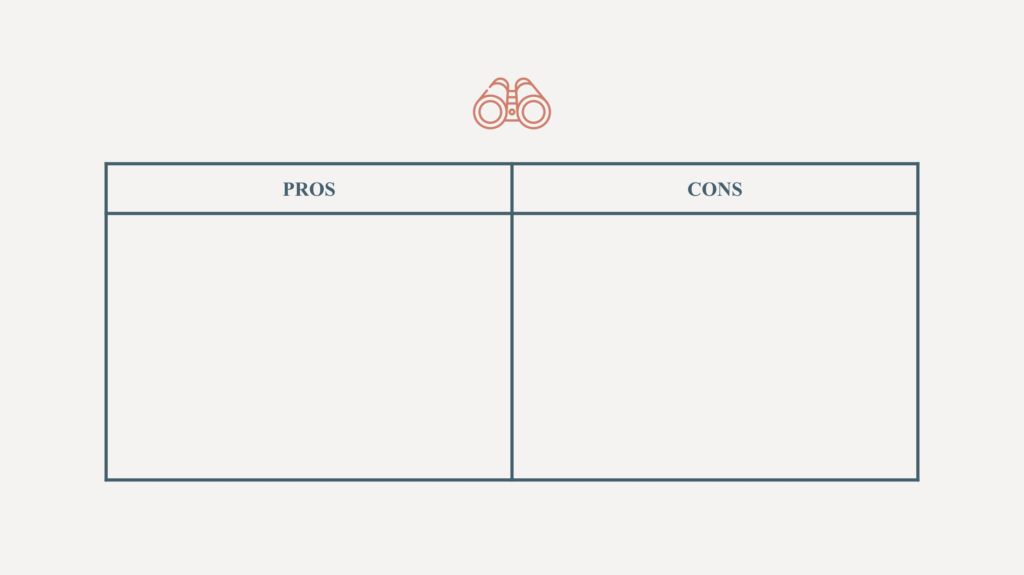Although we would like to think we have a realistic perception of ourselves and the world around us, many of our thoughts are actually inaccurate representations. These so-called cognitive distortions can trick the mind, impacting our sense of self, our mental health, and even the integrity of our decision making. How can we learn to think more clearly?
Binocular tricks of the mind
A cognitive distortion is a mental phenomenon where we develop an inaccurate perception of reality. Cognitive distortions are often described as “pop-up” thoughts that quickly appear, but then start spiraling in a negative loop. They can be triggered by traumatic events such as difficult events in childhood.
The American psychiatrist Dr Aaron Beck worked with patients experiencing a wide range of mental health conditions, and discovered that distorted thinking patterns could impact the way we experience reality, which could in turn affect our mood.
A collaborative study between psychologists in Australia and Brazil confirmed Beck’s findings. The research teams agreed that the distortion of facts leads to the maintenance of negative beliefs, which can lead to low mood or even depression.
David D. Burns defines cognitive distortions as “a highly misleading way of thinking about yourself and the world”. He also describes the “binocular tricks” of magnification and minimization — two common forms of cognitive distortion.
In magnification, our mistakes, fears and shortcomings become exaggerated, as if we are looking at them through a pair of binoculars. This can lead to catastrophizing, whereby small errors feel all-consuming or seem far more impactful than they truly are.
Conversely, minimizing causes us to shrink the positive aspects of our lives down until they seem insignificant, barely worth noting, or even invisible. As if looking through a pair of binoculars backwards, you may minimize your own success or personal qualities so that you no longer recognize their value. You might also minimize others’ mistakes or imperfections, causing you to inaccurately believe that your peers are superior to you.
The impact of magnification and minimization
It is widely acknowledged that those who struggle with an intensely low mood are likely to show cognitive distortions. These errors of thinking contribute to the continuation of anxiety and depression, creating a vicious cycle.
In addition to giving anxiety and depression stronger roots, cognitive distortions such as magnification and minimization can negatively impact your decision-making and overall well-being.
Maximizing your mistakes, as if scrutinizing yourself through a pair of binoculars, can cause poor self-esteem, feelings of low self-worth and an unbalanced view of yourself. For example, at work, you might make a small mistake, but due to cognitive distortion, maximize its potential impact. Seeing a small mistake magnified could lead you to ruminate on the potential for disciplinary action, dismissal, or the end of your career, even though this is far from likely.
If you are interviewed for a role but are ultimately unsuccessful, you might go back through each interview question with a fine-tooth comb, and find holes or weaknesses in every one of your answers. You may start to believe that you are useless at interviews, and that you will never be successful in acquiring another job.
Conversely, minimizing your achievements will turn you into your harshest critic. If you pass an exam, are offered a new job, or receive a promotion, rather than seeing your success as being the result of your own hard work, you may downplay it as nothing more than luck. This belittles the effort you have put into succeeding, so that you do not recognize your own dedication or talent.
Many of us also fall into a trap of minimizing compliments paid to us. By automatically rejecting someone else’s opinion that we are hard-working, talented, or creative, we do not leave space for positive self-belief to blossom.
How to avoid binocular tricks
It is important to investigate whether the beliefs you hold might be distorted, as beliefs that are strongly inaccurate can negatively influence one’s overall thinking and behavior. Fortunately, there are several strategies that you can follow to avoid magnification and minimization.
Here is a simple exercise to reduce the impact of the binocular tricks your mind may play on you. For any situation you face, you can draw two columns and then document the relevant pros and cons, trying to keep the list of pros longer than the list of cons.

For example, if you are unsuccessful at an interview, try to tease out the positives of the experience. This might include the recruitment process being beneficial for future applications, the interview being an opportunity to network with other professionals, or the chance to further narrow down your job search. By keeping the list more positive than negative, you can avoid setting up a vicious cycle.
Whenever something good happens, or someone says something positive about you or your work, make a note of it. You can keep your notes in an app, in your journal, or even on small pieces of paper that you store in a jar. In collecting these memories, you create a resource that you can pull from whenever you next experience magnification or minimization.
Finally, talk with your friends about your experiences and general mental health. Those close to us can often offer a far more balanced perspective, enabling them to point out when our perception may be positively or negatively exaggerated. Although it may feel natural to bat their compliments away, try to accept them and see yourself in the same light that others do.
Binocular tricks of the mind can damage your mental health, propagating anxiety and depression, and even negatively impacting your decisions. Putting these strategies in place will help you focus on areas in which you have excelled, rather than dwelling on the things that have not gone as well as you hoped. Rather than harshly critiquing yourself, you can start to adopt a more self-compassionate mindset.
